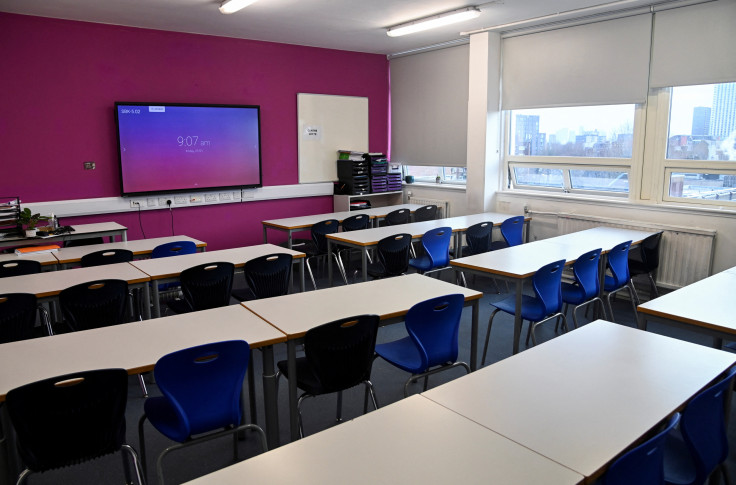New free schools to soon be accessible to underprivileged students across Britain
In an effort to better school standards, 15 new free schools will be opened up in areas where education pedigree is below the level required.

The British government has made it a priority to increase the level of standards among underprivileged school students and ideally provide them with a strong learning and educational mindset which can carry them into a more promising future.
What should help in this situation is the opening of 15 brand new free schools that the government has today announced.
The new free schools that will be opened are going to be located in places across the nation where education does not have a strong foothold and output is not of a particularly great standard. Roughly 12,000 pupils will be able to improve their educational skillset from these new free schools opening up and the underprivileged students will crucially have access to a better education.
Three of the new free schools, which will be sixth-form colleges, are set to be run by the well renown Eton College as well as academy trust, Star Academies, and will be based in Dudley, Teesside and Oldham. This will bring much higher standards of teaching and education for pupils in the North East, Midlands and West Midlands.
Chief Executive of Star Academies, Sir Hamid Patel CBE, expressed delight at collaborating with Eton College to help more students work towards a better future.
He said: "We're delighted our three sixth form colleges – being delivered in partnership with Eton College – will be part of the programme and we look forward to working with our local stakeholders to provide more young people with the high-quality education and aspirational opportunities they deserve."
Headmaster of Eton College, Simon Henderson, also spoke glowingly on this partnership, pronouncing: "We believe these new colleges have the potential to be transformative both for the young people who attend and for the wider communities they will serve. Collaborative partnership(s) will be key to this project's success and we are very grateful for the support we have had already."
A reported 480 pupil spots will be available at the sixth-form colleges which Eton College and Star Academies will run with Eton College set to help with giving financial and extra-curricular support. Addressing deprived and underperforming areas in the education realm is vital in the government bettering education levels as these places need it the most and cannot afford to drop further in their educational standards.
Being on the receiving end and benefitting from an education structure that is run by exceptionally performing institutions will give the very talented pupils a promising platform to achieve their lofty ambitions of enrolling at a top-performing university. This might allow parents of underprivileged students to be more at ease knowing the new free schools provide more and much better educational opportunities for their children.
Free schools being overseen by organisations in the realm of universities, industry and predominantly academy trusts instead of local authorities is largely beneficial. This is because there is much more freedom and room for innovation when looking to better the opportunities of students and upgrade educational standards, with curriculum planning and teacher salaries among what the organisations have control of dictating.
The government identified free schools and academies as a key part in increasing the standards of education in the country and carrying this out in recent times has now begun to pay off and show positive and encouraging results. This is as Ofsted has marked 88 per cent of schools in the nation as either good or outstanding, which is a significant leap from the figure of 68 per cent in 2010.
Also, children in England have begun to become some of the very best readers around according to international rankings with nine and 10-year-old pupils rated as the best performing across Western nations.
The success of students from free schools is recognised by them bettering the performances of pupils in other forms of non-selective state schools. This includes last week's A-level results which saw approximately 35 per cent of students in free schools achieve an A or A* grade whilst 22 per cent of local authority school students achieved the same feat.
Education Secretary, Gillian Keegan, touched on the impact these free new schools can have. She stated: "We want to make more good school places available to families, and these 15 new free schools will bring brand new opportunities to young people. Free schools bring high standards, more choice for parents and strong links to industry – and all in the areas where those opportunities are needed most."
In addition to Dudley, Teesside and Oldham, the new free schools will be opened up in places including Bradford, Swindon, Manchester, Liverpool, Derbyshire, Bristol, Leeds, Southampton and Doncaster. The schools will range from being for 16 to 19-year-old schools (sixth forms and colleges), all through schools from four to 16 years, primary schools and secondary schools.
The listed areas set to be the location of the new free schools are among some of the nation's lowest-rated spots when it comes to education outcomes.
The government is making underprivileged students in these areas its priority and will hope new standards of teaching and learning will help them have a successful future, whilst that can also ultimately bolster the economy and grow it.
© Copyright IBTimes 2025. All rights reserved.






















